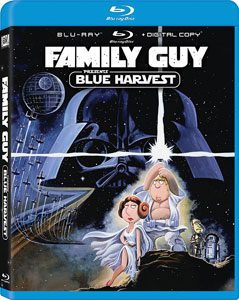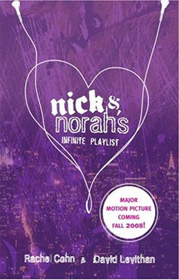My friend Ally wondered the other day why filmmakers can’t just stay true to the book, especially if it’s a good book. I had mentioned that “Nick & Norah’s Infinite Playlist” was my favorite movie of 2008, and she said she hated it because the book was better.
After reading “Nick & Norah,” a young-adult novel written by Rachel Cohn and David Levithan, I have to say the movie is superior, and what’s more, a straight interpretation of the book would’ve made a bad movie.
Nick and Norah trade off chapters talking about their feelings in first-person narrative — this structure makes it a page-turner, but it doesn’t lend itself to movie form. If they did that for two hours on the big screen, we’d think they are a couple of self-absorbed a**h***s. In movies, the emotion has to be a revelation after build-up. Books can be a steady spewing of emotion, because we are free to escape from Nick and Norah’s brains by getting up and grabbing a snack — you can’t do that in a movie theater without missing something.
We forgive pretension in book characters, but not in movie characters. For example, I sympathize with Holden Caulfield when I read “The Catcher in the Rye,” but I’d find him whiny over the course of a film. When Holden tells you (in book form) that he became really depressed when his former teacher failed in his attempt to toss the magazine onto the bed, I think, “He has really captured the essence of those little sad moments in life.” Seeing the same scene play out in a movie, I’d yell, “Gimme a break!”
The movie “Nick & Norah” incorporates things a book can’t, like the tasty indie soundtrack and the gritty New York cityscape. Granted, the book introduced these elements; the movie merely ran with them.
I admit it’s easier to put great music in a movie than it is to put great music in a book. Nick Hornby is the best at it, but sometimes even Rob Gordon needed to step off his soapbox. The authors write Nick and Norah’s thoughts a little bit like music critics, but of course, no one thinks like a critic when they are lost in the moment of loving how something sounds. I’ll cut Cohn and Levithan some slack, though: It’s damn hard to write about why you like music without resorting to a) music critic terminology or b) pseudo-poetry that you’ll later cringe at.
I respect Nick and Norah’s music tastes (I bought the soundtrack right after the movie came out), but their mix-disc prowess isn’t what makes me like them. I like them because of their personalities, and Michael Cera and Kat Dennings give them personalities. In the book, Nick and Norah are two rather bland kids on an impromptu date — an iconic representation of mid-Oughts teens, maybe, but I couldn’t entirely warm up to them. And this was largely because I was comparing them to their movie counterparts.
When Nick (from the movie) says he never washes his pants because he likes to “keep the night on them,” I immediately got that kid, partly because Cera says the line. If the same line was written in the book, which it wasn’t in this case, I would feel like it’s just the authors writing a clever line. There are a lot of clever lines and paragraphs in this book, but it doesn’t all come together like the movie does.

The movie takes a small segment of the novel — Nick and Norah seeing the underground band Where’s Fluffy — and, perhaps inspired by the band’s name, turns it into a through-line where everyone is trying to learn when and where Fluffy is playing that night in the city. The movie ends with the Where’s Fluffy show, and then the great moment where our title characters walk out of the club together because they found more than a show, they found each other (aww).
The movie also expands the character of Caroline (a decision perhaps inspired by Ari Graynor, who gives one of the all-time great performances as a drunk), adding that awesome scene where she happily, sloshily says hello to a turkey sandwich.
And the movie cuts back in key areas. The book has a sex scene that seems to go on forever. If the reader bookmarks a sex scene halfway through because it’s too exhausting to read in one sitting, then it’s too long. It does show how much Nick and Norah like each other, but it’s a blunt way of making that point. The movie’s sex scene is shorter, although one could argue that it wasn’t needed in the movie, and it wouldn’t have been needed in a better book.
Also, the cursing. Page 95 has 26 f***s on it. Sure, kids raised in an age that coincides with Steve Buscemi’s film career say “f***” under their breath when thinking through a frustrating scenario. But that many “f***s” just wouldn’t play well in a sweet-natured film, because curse words have more verbal punch than written punch. Of course, they have no punch at all if they are used as a adjective before every noun. One of my buddies from high school made it a point to never swear; his reasoning was that when he did swear, we’d know he meant it.
“Nick & Norah” is a good young-adult book that would’ve made a weak movie if adapted straight-on. As it turns out, it’s a good young-adult book that inspired a great movie — a much better scenario for everyone involved.
I welcome your rebuttal, Ally.

